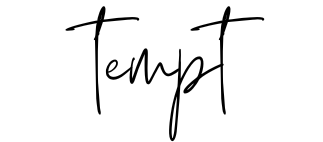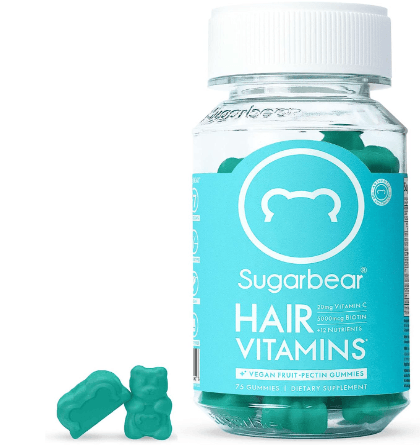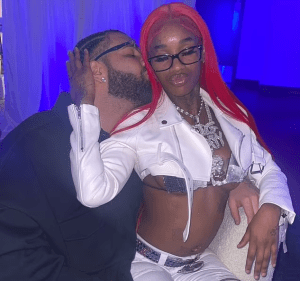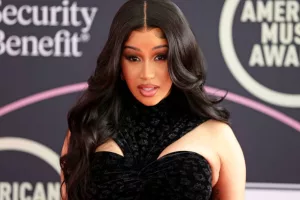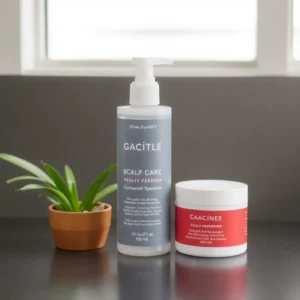You know what they say: healthy hair, healthy life! And let’s be real, who doesn’t want hair that’s shinier than a disco ball? But sometimes life gets in the way, and our hair can suffer. Enter hair vitamins! These bad boys (or girls, we don’t want to assume gender here) are like little superheroes for your strands, swooping in to save the day when poor nutrition, stress, and hormonal changes are wreaking havoc on your precious locks. So say goodbye to bad hair days and hello to the luscious, luxurious mane of your dreams with the help of some trusty hair vitamins!
Why do Hair Vitamins Matter?
Hair vitamins are packed with essential nutrients that can help to nourish the hair from within. They provide the body with the building blocks it needs to create healthy hair. Hair vitamins can also help to protect the hair from damage caused by free radicals, pollution, and other environmental stressors.
Types of Hair Vitamins
There are several types of hair vitamins that can help to improve the health of your hair. Let’s take a closer look at each one.
1. Biotin
Biotin, also known as vitamin H, is a B vitamin that plays a crucial role in the health of our hair, skin, and nails. Biotin helps to strengthen the hair and prevent breakage. It also helps to improve the texture and thickness of the hair.
2. Vitamin D
Vitamin D is an important nutrient that helps to regulate the growth and development of our hair follicles. A deficiency in vitamin D can lead to hair loss and thinning.
3. Vitamin E
Vitamin E is a powerful antioxidant that helps to protect the hair from damage caused by free radicals. It also helps to improve the circulation of blood to the scalp, which can promote hair growth.
4. Vitamin A
Vitamin A helps to produce sebum, which is the natural oil that moisturizes the scalp and keeps the hair healthy. A deficiency in vitamin A can lead to dry, itchy scalp and hair breakage.
5. Vitamin C
Vitamin C is an antioxidant that helps to protect the hair from damage caused by free radicals. It also helps to produce collagen, which is a protein that makes up the structure of the hair.
6. Iron
Iron is a mineral that helps to transport oxygen to the hair follicles. A deficiency in iron can lead to hair loss and thinning.
7. Zinc
Zinc is a mineral that helps to regulate the production of oil in the scalp. It also helps to strengthen the hair and prevent breakage.
8. Omega-3 Fatty Acids
Omega-3 fatty acids are essential fats that help to nourish the hair and prevent inflammation. They also help to improve the health of the scalp, which can promote hair growth.
Hair Products Formulated With Hair Vitamins
There are many hair products on the market that are formulated with biotin, vitamin D, vitamin E, vitamin A, vitamin C, iron, zinc, and omega-3 fatty acids. Here are some of the best hair products that contain these ingredients:
Hair Growth Supplements – Hair growth supplements are taken orally and are formulated with biotin, vitamin C, iron, zinc, and omega-3 fatty acids. They are a convenient way to ensure that your body is getting the nutrients it needs to support healthy hair growth.
- Improve the look and overall health of hair.* 97% of Sugarbear users started to see results in the overall look and health of their hair based on a 12-week U.S. consumer study.
- A scientifically-formulated blend of Vitamin A, Biotin, Vitamin C, Vitamin D, Vitamin E, Vitamin B-6, Folic Acid, Vitamin B-12, Biotin, Pantothenic Acid, Iodine, Zinc, Choline, and Inositol. Biotin helps maintain existing hair growth and contributes to the normal strength of hair and nails.
- Manufacturer : SugarBearHair
It’s important to note that not all hair products work the same for everyone, and what works for one person may not work for another. It’s also important to choose high-quality hair products from reputable brands that use natural and safe ingredients.
Benefits of Hair Vitamins
Hair vitamins are becoming increasingly popular among those looking to improve the health and appearance of their hair. These vitamins are designed to provide the body with the nutrients it needs to promote healthy hair growth and prevent hair loss. Here are some of the benefits of hair vitamins:
- Promote Hair Growth – Hair vitamins can help to promote hair growth by providing essential nutrients that support the hair follicles. This can lead to stronger, healthier hair that is less prone to breakage and shedding. One study found that a daily supplement containing biotin, vitamin C, and other essential nutrients can increase hair growth in women with thinning hair.
- Prevent Hair Loss – Hair vitamins can also help to prevent hair loss by providing the body with the nutrients it needs to maintain healthy hair growth. This can help to slow down or even reverse the effects of hair loss. One study found that a supplement containing saw palmetto, biotin, and other nutrients can improve hair thickness and reduce hair loss in men with male pattern baldness.
- Strengthen Hair – Hair vitamins can help to strengthen the hair by providing essential nutrients that help to improve the structure and integrity of the hair. This can help to prevent breakage and promote healthier, more resilient hair. One study found that a supplement containing zinc and biotin can improve hair strength and reduce hair loss in women with thinning hair.
- Enhance Hair Texture and Shine – Hair vitamins can also help to improve the texture and shine of the hair. By providing essential nutrients that support the health of the hair follicles and scalp, hair vitamins can help to create smoother, shinier, and more manageable hair. One study found that a supplement containing omega-3 fatty acids, vitamin E, and other nutrients can improve hair texture and shine in women with dry and brittle hair.
Experts generally agree that hair vitamins can be a beneficial addition to a healthy hair care routine. However, it’s important to choose high-quality hair vitamins from reputable brands that use natural and safe ingredients. It’s also important to remember that hair vitamins are not a substitute for a healthy diet and lifestyle, and that individual results may vary. If you’re considering taking hair vitamins, it’s a good idea to talk to your healthcare provider to ensure that they’re safe and appropriate for you.
Possible Side Effects of Hair Vitamins
While hair vitamins can be incredibly beneficial for improving hair health, they can also have some side effects. Let’s take a closer look at some of the most common side effects of hair vitamins.
1. Nausea and Vomiting
Some people may experience nausea or vomiting after taking hair vitamins, especially if they take them on an empty stomach. To avoid this, it’s best to take hair vitamins with food.
2. Acne Breakouts
Hair vitamins can also cause acne breakouts in some people. This is because some hair vitamins contain biotin, which can cause an increase in sebum production. To avoid this, it’s important to choose hair vitamins that are formulated without biotin or to reduce the dosage.
3. Allergic Reactions
Hair vitamins can also cause allergic reactions in some people. If you experience itching, swelling, or hives after taking hair vitamins, stop taking them immediately and consult your doctor.
4. Interference with Medications
Some hair vitamins can interfere with certain medications, such as blood thinners or antibiotics. To avoid this, it’s important to consult your doctor before taking hair vitamins if you’re taking any medications.
How to Choose the Right Hair Vitamins
Choosing the right hair vitamins can be a daunting task, especially with so many options available on the market. Here are a few tips to help you choose the right hair vitamins for your needs.
- Look for hair vitamins that contain a variety of essential nutrients, including biotin, vitamin D, vitamin E, vitamin A, vitamin C, iron, zinc, and omega-3 fatty acids.
- Choose hair vitamins that are formulated for your specific hair type and concerns, whether you’re looking to promote hair growth, prevent hair loss, or improve hair texture and shine.
- Read reviews and do your research to find a reputable brand that uses high-quality ingredients and has a good track record of delivering resultshttps://tempt.com.ng/hair-extensions/.
Conclusion
Hair vitamins can be a great way to support hair health and promote hair growth. By providing the body with essential nutrients, hair vitamins can help to strengthen the hair, prevent hair loss, and enhance hair texture and shine.
However, it’s important to choose the right hair vitamins and be aware of any potential side effects before starting to take them. If you’re experiencing hair loss or other hair concerns, it’s always a good idea to consult with a healthcare professional to determine the underlying cause and the best course of treatment.
FAQs
- Can hair vitamins replace a healthy diet?
No, hair vitamins are intended to supplement a healthy diet, not replace it. It’s important to eat a balanced diet that includes plenty of fruits, vegetables, whole grains, lean protein, and healthy fats to support overall health and hair health.
- Can I take multiple hair vitamins at the same time?
It’s generally not recommended to take multiple hair vitamins at the same time, as this can lead to an overdose of certain nutrients. It’s best to choose one high-quality hair vitamin that meets your specific needs.
- Can hair vitamins cause hair growth in areas where I don’t want them?
No, hair vitamins only work to support healthy hair growth in areas where hair is already growing. They will not cause hair to grow in areas where there is no hair follicle.
- How long do I need to take hair vitamins to see results?
It can take several weeks or even months to see results from hair vitamins, as they work by providing the body with the nutrients it needs to support healthy hair growth.
- Can hair vitamins cause hair thinning or shedding?
No, hair vitamins are designed to support healthy hair growth and should not cause hair thinning or shedding. However, if you experience any unusual hair loss or shedding, it’s important to consult with a healthcare professional to determine the underlying cause.
